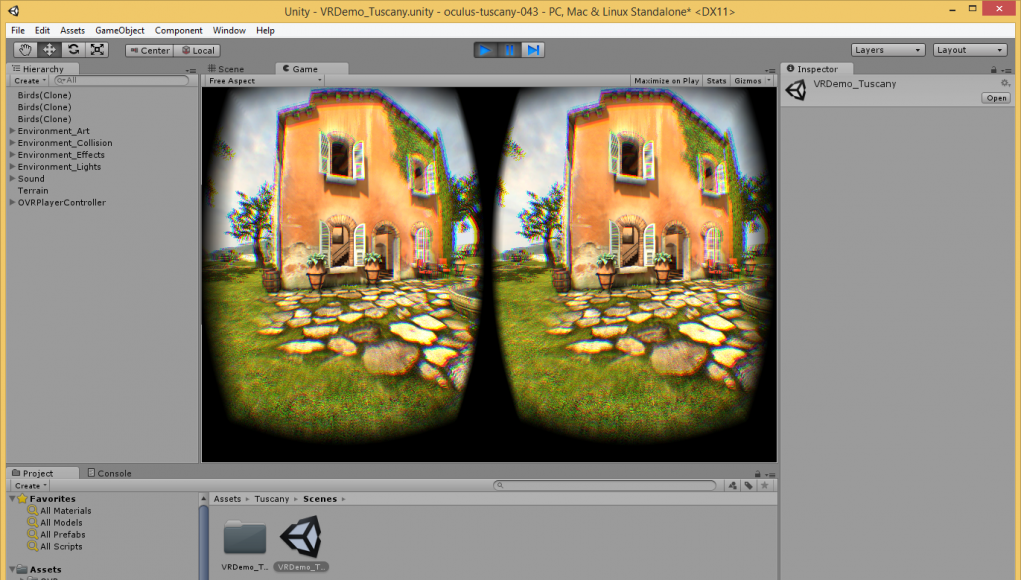 Pete Moss is Unity’s “VR Dude” in that he’s been a long-time believer and advocate in the cross section between VR and gaming and how the Unity game engine could play a significant part. He talks to me about his dual role of content creator and dogfooding the Unity engine as well as evangelizing VR to different communities and collecting experience prototypes from different game jams and developers from around the world. Pete’s passion for the potential of virtual reality is clear, and he’s the most excited to see how artists use VR to express themselves given that VR provides completely new pathways into the brain.
Pete Moss is Unity’s “VR Dude” in that he’s been a long-time believer and advocate in the cross section between VR and gaming and how the Unity game engine could play a significant part. He talks to me about his dual role of content creator and dogfooding the Unity engine as well as evangelizing VR to different communities and collecting experience prototypes from different game jams and developers from around the world. Pete’s passion for the potential of virtual reality is clear, and he’s the most excited to see how artists use VR to express themselves given that VR provides completely new pathways into the brain.
LISTEN TO THE VOICES OF VR PODCAST
As part of Pete’s job, he has been going around to different conferences around the world to keep tabs on where the industry is going. He’s starting to talk at more non-gaming gatherings such as different events in Hollywood as the film industry is starting to look into how to best use this new immersive medium for storytelling and entertainment. But he’s also been available at different game jams as a Unity expert as well as witness to the imagination and creativity for how different developers have created
One of the examples that he provided was being at the Boston game jam with an early prototype of Valve’s HMD and hearing Ben Throop talk about his desire to create a soccer game where you head a soccer ball into the goal. Ben went on to finish that prototype, and eventually have Headmaster be selected by Sony to be a release title for the PlayStation VR, which is having their PlayStation Experience this coming weekend.
Here’s a video of Pete helping to launch soccer balls to Valve’s Chet Faliszek and Aaron Leiby with the first working prototype for Headmaster
I really see Unity as the “lingua franca” of these immersive technologies. It’s pretty clear that the majority of VR experiences have been created within the Unity game engine, and Unity will also be a key to bringing immersive experiences to AR systems like Microsoft’s Hololens, Meta, and Magic Leap.
The PR firm representing Unity followed up with me after this interview, and passed along some of these other statistics in terms of how widely Unity is being used.
- Unity accounts for 95% of all virtual reality content developed for platforms such as the Samsung Gear VR, Oculus Rift, HTC Vive, and Sony PlayStation VR
- On the Oculus Gear VR Store, Unity accounts for 88% of the games
- 174,000 games (not just VR) were made with Unity last quarter
- 5 million people in the world are currently using and creating on Unity
- 465 engineers are working on making a better 3D engine every day
Unity’s biggest competitor in the VR space has been Epic’s Unreal Engine, and I wouldn’t be surprised to see Crytek’s CryENGINE start to move towards more of an open and free model based upon what was hinted to me at the Virtual Reality Intelligence gathering. But whether or not these numbers end up being 95% or 85% of the market share, it’s clear that Unity is a significant player when it comes to providing the content creation tools for VR game and experience developers to manifest their creative visions.
Become a Patron! Support The Voices of VR Podcast Patreon
Theme music: “Fatality” by Tigoolio






